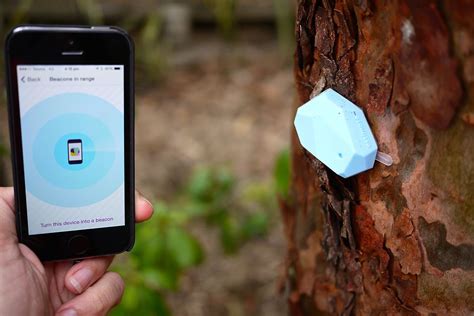iBeacon technology has revolutionized the way businesses interact with their customers, providing a seamless and personalized experience. Since its introduction in 2013, iBeacon has been widely adopted in various industries, transforming the way companies engage with their audience. In this article, we will explore the applications and uses of iBeacon technology in real-world scenarios.
What is iBeacon Technology?
iBeacon is a protocol developed by Apple that enables Bluetooth Low Energy (BLE) devices to transmit unique identifiers to nearby mobile devices. These identifiers, known as UUIDs, can be used to trigger specific actions or notifications on the device. iBeacon technology is based on proximity, allowing businesses to deliver targeted content to customers based on their location.
Retail and Shopping
iBeacon technology has transformed the retail industry, providing businesses with a powerful tool to engage with customers. Here are some examples of iBeacon applications in retail:
- Personalized offers: Retailers can use iBeacon to deliver personalized offers to customers based on their location and shopping history.
- In-store navigation: iBeacon can be used to provide customers with turn-by-turn directions to specific products or departments within a store.
- Product information: Customers can receive detailed product information, such as prices, reviews, and descriptions, when they are near a specific product.

Healthcare and Hospitals
iBeacon technology has several applications in healthcare, including:
- Wayfinding: iBeacon can be used to provide patients and visitors with directions to specific departments or rooms within a hospital.
- Patient tracking: iBeacon can be used to track patients' movements and locations within a hospital, ensuring that they receive timely care.
- Medical asset tracking: iBeacon can be used to track medical equipment and supplies, ensuring that they are easily accessible when needed.

Airports and Transportation
iBeacon technology has several applications in airports and transportation, including:
- Wayfinding: iBeacon can be used to provide passengers with directions to specific gates, terminals, or facilities within an airport.
- Flight updates: iBeacon can be used to provide passengers with real-time flight updates, such as delays or cancellations.
- Baggage tracking: iBeacon can be used to track passengers' baggage, ensuring that it is delivered to the correct destination.

Museums and Galleries
iBeacon technology has several applications in museums and galleries, including:
- Interactive exhibits: iBeacon can be used to provide visitors with interactive exhibits, such as audio guides or videos.
- Artwork information: iBeacon can be used to provide visitors with detailed information about specific artworks, such as artist statements or historical context.
- Wayfinding: iBeacon can be used to provide visitors with directions to specific exhibits or galleries within a museum.

Stadiums and Arenas
iBeacon technology has several applications in stadiums and arenas, including:
- Wayfinding: iBeacon can be used to provide fans with directions to specific seats, concessions, or facilities within a stadium.
- Game updates: iBeacon can be used to provide fans with real-time game updates, such as scores or player statistics.
- Concession ordering: iBeacon can be used to allow fans to order concessions from their seats, reducing wait times and increasing convenience.

Benefits of iBeacon Technology
iBeacon technology offers several benefits to businesses, including:
- Increased customer engagement: iBeacon technology allows businesses to deliver targeted content to customers, increasing engagement and loyalty.
- Improved customer experience: iBeacon technology provides customers with a seamless and personalized experience, improving their overall satisfaction.
- Increased revenue: iBeacon technology can be used to deliver personalized offers and promotions, increasing revenue and sales.
Challenges and Limitations of iBeacon Technology
While iBeacon technology offers several benefits, it also has several challenges and limitations, including:
- Technical issues: iBeacon technology can be affected by technical issues, such as signal interference or battery drain.
- Security concerns: iBeacon technology can raise security concerns, such as data breaches or unauthorized access.
- Cost: iBeacon technology can be expensive to implement, especially for small businesses or organizations.
Gallery of iBeacon Applications
FAQ
What is iBeacon technology?
+iBeacon technology is a protocol developed by Apple that enables Bluetooth Low Energy (BLE) devices to transmit unique identifiers to nearby mobile devices.
What are the benefits of iBeacon technology?
+iBeacon technology offers several benefits, including increased customer engagement, improved customer experience, and increased revenue.
What are the challenges and limitations of iBeacon technology?
+iBeacon technology can be affected by technical issues, security concerns, and cost.
In conclusion, iBeacon technology has revolutionized the way businesses interact with their customers, providing a seamless and personalized experience. With its numerous applications and benefits, iBeacon technology is an essential tool for businesses looking to increase customer engagement, improve customer experience, and increase revenue.
